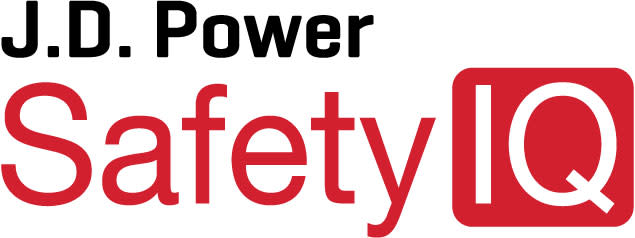Many Recalled Vehicles Go Without Remedy
Automakers and dealers are facing a storm of unremedied vehicle safety recalls, according to data from the National Highway Traffic Safety Administration (NHTSA). These data, recently analyzed by J.D. Power’s SafetyIQ platform, indicate that automobile safety recalls are occurring at record levels and are aggravated by parts shortages and inaction on the part of the owners of recalled vehicles.
Over the past 20 years, more than 437 million vehicles have been affected by safety recall decisions in the United States, according to the NHTSA. In 2015 alone, more than 51 million vehicles were the subject of safety recalls, more than in any previous year. The NHTSA estimates that more than 45 million vehicles were the subject of safety recalls issued between 2013 and 2015 and are still unremedied.

By analyzing NHTSA data and its proprietary benchmarking data using its SafetyIQ platform, J.D. Power demonstrates that the primary factors impacting completion rates for those recalls are vehicle age, vehicle type, overall population of recall, and type of recall.
“The steady surge in recalls, combined with NHTSA’s stated goal of 100% recall completion rates, have made the number of unremedied recalls still on the road a critical statistic for automakers and dealers,” said Renee Stephens, vice president of U.S. automotive at J.D. Power. “By understanding the behavioral trends of vehicle owners, as well as recall completion rates among different vehicle and recall types, as an industry we can better tailor communications to improve those completion rates.”
Following are the key findings in the J.D. Power SafetyIQ analysis. All data are based on recall decisions made from 2013-2015, as reported through six quarters of completion information.
Unremedied vehicles are more common in older models. The total recall completion rate for vehicles from model years between 2013 and 2017 is 73%. This compares with a completion rate of just 44% for vehicles manufactured between 2003 and 2007.
Recall completion varies by vehicle type. Among vehicle segments, Large/Work Vans have the highest overall recall completion rate, at 86%, followed closely by compact premium SUVs at 85%. This contrasts with the Mid-Premium Sports Car segment, which has a completion rate of just 31%, and with Large SUVs, which have a completion rate of 33%.
Larger populations present bigger completion challenges. The completion rate for individual recalls affecting more than one million vehicles is 49%. This compares with a 67% completion rate for individual recalls affecting fewer than 10,000 vehicles. It is sometimes difficult to obtain a number of parts sufficient to launch large campaigns. Additionally, customers can more easily receive a targeted communication method, such as a phone call, with a smaller population of vehicles.
Powertrain and electrical system recalls are most likely to get fixed. Of the major safety components, the groups with the highest recall completion rates are powertrain (71%), electrical (62%), and hydraulic brakes (66%). Air bags and suspension issues have the lowest completion rates at 47% and 48%, respectively.
Consumers may report suspected safety defects in their vehicle, vehicle equipment, and child safety seats by calling the NHTSA at 1-888-327-4236.
For more information on J.D. Power SafetyIQ, please visit www.jdpower.com/safetyiq
Abstract:
Automakers and dealers are facing a storm of unremedied vehicle safety recalls, according to data from the National Highway Traffic Safety Administration (NHTSA).
Year:
2 016
Check this if this is NOT an Articles Listing Page:
Display Article Date?:
Article Is Flipbook:
No

 Yahoo Finance
Yahoo Finance 
